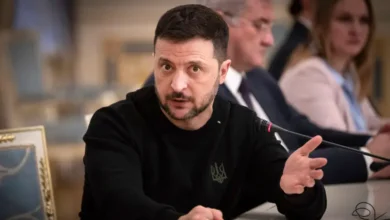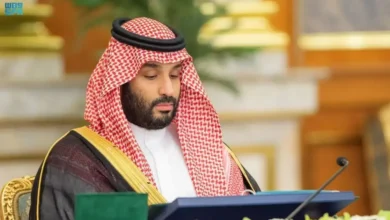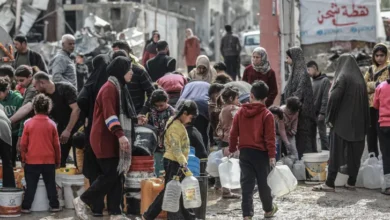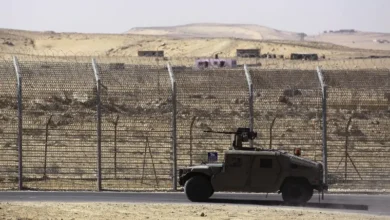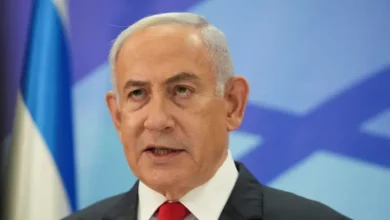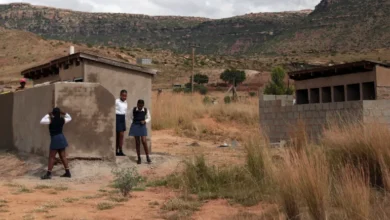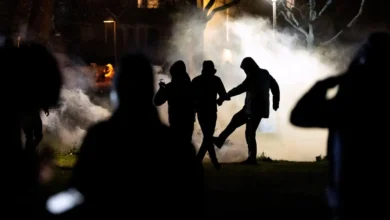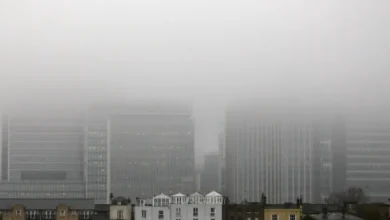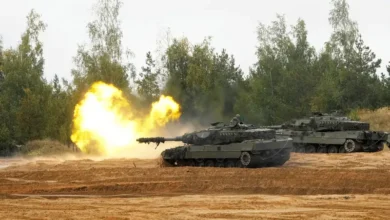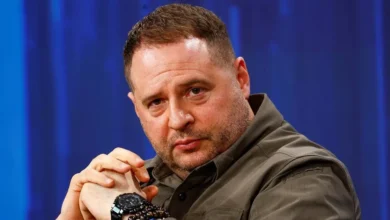US foundation eyes takeover of Gaza aid
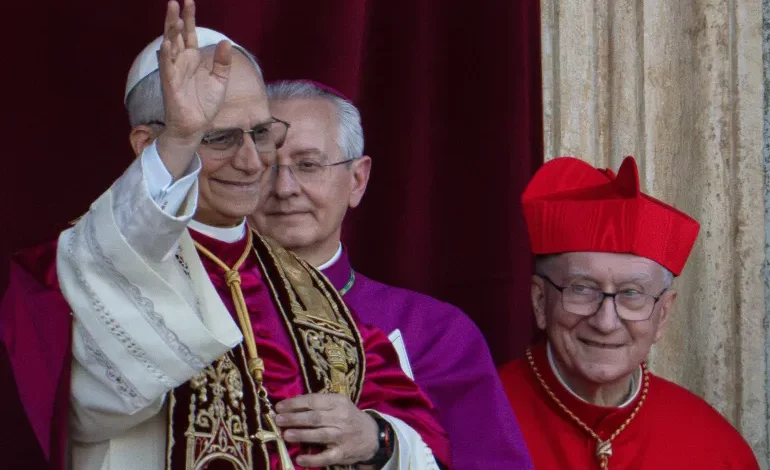
The United States has said a new foundation is being established to coordinate aid deliveries to Gaza amid Israel’s two-month blockade.
US Ambassador to Israel Mike Huckabee told reporters on Friday that Israel would not be involved in distributing aid in the enclave but would provide security for the operations of the Gaza Humanitarian Foundation (GHF).The plan for the “charitable” and “non-governmental” initiative was announced on Thursday by State Department spokeswoman Tammy Bruce. Although few details were revealed, it appears part of a US-Israeli push to take over the distribution of aid to prevent it from being diverted by Hamas and other groups.
The AP news agency reported that the newly created GHF had issued a proposal to implement a new aid distribution system, supplanting the current one run by the United Nations and other international aid agencies.
Reports claim that under the proposal, private contractors will be used to secure hubs where Palestinians will be required to gather to collect supplies.The intention to sideline the United Nations has drawn sharp criticism from humanitarian organisations, and it is unclear if the GHF proposal will ease those concerns.
Bruce promised further announcements regarding the proposal would follow soon. “I was hoping to introduce it today, but the foundation will be announcing this shortly,” she said.
The former executive director of the UN World Food Programme David Beasley is in talks with the US, Israel and other key players to head the GHF, reported US outlet Axis, quoting unnamed sources.
Israel’s blockade, implemented about two weeks before it resumed its bombardment of the enclave, has left Gaza’s 2.3 million Palestinians, most of whom have been displaced multiple times, desperately short of food, fuel, and medicine.Israeli ‘aid plan’
The US plan appears to be designed along similar lines to a proposal approved by Israel’s security cabinet on Sunday.
Under the scheme, four “Secure Distribution Sites” would be constructed, each intended to serve 300,000 people. Palestinians expelled from northern Gaza would be forced to relocate to reach the centres.
The plan was met by sharp criticism from the UN and other aid groups, who noted that Palestinians have regularly come under attack from Israeli forces while collecting aid.
Addressing those concerns, Huckabee on Friday said “the most significant danger is not doing anything” and “people dying from hunger”.The decision to bypass international aid agencies comes amid growing alarm over famine-like conditions in the besieged territory, where Israel’s near-total blockade has cut off all essential supplies for almost three months.
At least 57 Palestinians have starved to death in Gaza, with most of the victims being children, as well as the sick and elderly.
UN humanitarian agency spokesperson Jens Laerke condemned the effort to dismantle existing aid structures on Tuesday.
“This appears to be a deliberate attempt to weaponise the aid,” he said. “It should be based solely on humanitarian need.”Just an hour and a half earlier, white smoke had billowed from the chimney of the Sistine Chapel, announcing that a conclave of cardinals had elected a new leader for the world’s 1.4 billion Catholics.
Now, it was time to meet Pope Leo himself. A solemn silence fell across the square. The faithful waited to hear the pope’s first message, which would set the tone for his papacy.
“Peace be upon you,” said Leo XIV, appearing on the central balcony of St Peter’s Basilica.
He proceeded to repeat a blessing uttered by his late predecessor, Pope Francis, just weeks earlier: “God loves us, God loves everyone, and evil will not prevail. We are in the hands of God.”
It was a closely watched moment, with red-hatted cardinals poking out of nearby windows to catch their first glimpse at the newly minted pontiff.“Bravo! That is what we need!” one audience member in the square shouted as the new pope spoke.
Another, 29-year-old Kasper Mihalak from Denmark, was squeezed in the middle of the crowd hoping to catch a glimpse of the first North American pope.
“I am really excited. Cardinal Prevost, now Leo XIV — it’s gonna be amazing! He said a lot about peace during his speech. I think the world now really needs it,” Mihalak said.
Rosaria Venuto could hardly hold back her tears. Early in the morning, she picked up her two children and drove four hours from Ascoli Satriano, a small town in the southern Italian province of Apulia, to be in St Peter’s Square.
“I am deeply moved to have the chance to be here and live through this joy and be a small part of this historical event,” she said.His own man
Born in Chicago, a midwestern city in the United States, Leo XIV spent more than two decades in Peru, where he acquired dual citizenship.A unifying figure
Leo XIV’s election came as a surprise to many. Many observers were betting on a new pope by nightfall, but few expected only three rounds of voting.
The crowd was stunned when white smoke started to pour out of the tiny chimney by early evening, at around 6:09pm local time (16:00 GMT).
That was the signal that — of the 133 cardinals under the age of 80 who were eligible to vote — a candidate had received the two-thirds majority needed to become pope.This year’s conclave had the distinction of being the most international in the Vatican’s history: The participating cardinals hailed from more than 70 countries, representing divergent views for the Catholic Church’s future.
The diversity was part of the legacy of Pope Francis, who appointed cardinals from underrepresented countries like Laos and Haiti to broaden the church’s global appeal.
Francis spent 12 years as head of the Catholic Church, shaking up the establishment by adopting a distinct style and tone, focused on austerity and advocacy for marginalised populations.
The late pope’s efforts caused excitement among reformers but also dismay among conservatives, who accused him of diluting the Church’s teachings. Experts say that led to a deep polarisation within the church, with some members criticising Francis for decentralising the church’s authority.
Those experts point out that Leo XIV’s experience in the Roman Curia — the church’s government — was likely a selling point among conservative conclave voters looking for stability in the years ahead.What’s in a name?
While Pope Leo XIV’s first moves are yet to be revealed, his choice of name is noteworthy.
Bruni, the Vatican spokesperson, noted that “Leo” is a direct reference to Pope Leo XIII, who adopted a new social doctrine in the late 19th century.
In 1891, Pope Leo XIII wrote an encyclical — or papal letter — known as the Rerum Novarum. It called on Catholics to address the “wretchedness” facing the working class, amid the upheavals of industrialisation and political changes like the unification of Italy.That encyclical marked a radical new approach to workers, and it triggered the creation of Catholic newspapers, social cooperatives and banks — a social movement that is still alive today.
Bruni said the current Pope Leo hoped to draw a parallel to that time, with its technological revolutions.
“It is not a casual reference to the men and women of their work at a time of artificial intelligence,” Bruni explained.
Robert Orsi, a professor of religious studies at Northwestern University, said the name choice could also signify other historical parallels.
Leo XIII “strongly put down a movement called Americanism,” said Orsi.
“This movement was a kind of nationalist impulse within Catholicism, with national churches claiming to have their own identities, their own particular ways of doing things,” he explained. “And I think by choosing the name Leo XIV, this pope was, without a doubt, signalling a return to a global Catholicism.”
Pullella also believes it is noteworthy that, while Leo XIV mentioned his parishioners in Peru, he avoided highlighting his ties with the US.
“I think it’s very significant that he did not give a shout-out to the United States. He didn’t say, ‘I’m from America.’ He didn’t speak in English,” Pullella said.
That sent a message that “basically he’s not owned by the United States”, Pullella added. Leo XIV has previously been critical of the administration of US President Donald Trump over issues like nationalism and migration, just as the late Pope Francis was.
